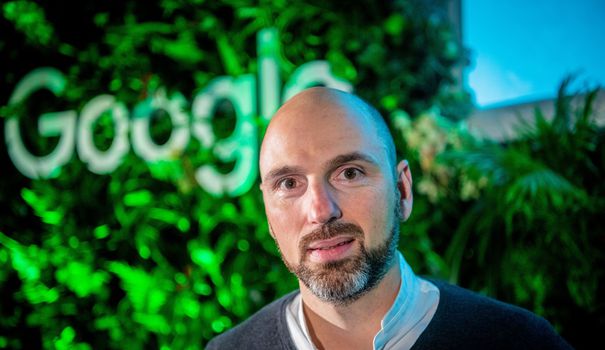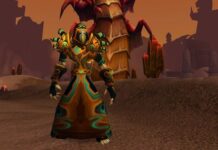In the world of artificial Intelligence (AI), he established himself as a rising star. Trained at the polytechnic School, passed through the Max Planck Institute (Germany), the French Olivier Bousquet, 43 years, directs the laboratories of IA european Google, in Zurich and Paris. For the Express, it is up on the latest advances in this field.
The Express. The AI, and more particularly the algorithms developed for machine learning (machine learning) and deep learning (deep learning), promise to change our societies. How do these technologies work ?
Olivier Bousquet. Let’s take the example of a program (such as deep learning) for automatic recognition of images of cats. To begin, we collect a database, in this case millions of photos tagged “cat” or “not cat”. We do spend in an artificial neural network – mathematical sequences on several layers -, and the software has to guess whether or not it is in front of a photo of cat. Once the response, it compares it with the original label. For each error, the system automatically applies changes in the different layers of its neural network so that you will not reproduce, and so on until you get optimal performance. This technology has limitations : it is necessary to create a new architecture for each application, whether it be the recognition of images, voice or learning the game of go.
READ ALSO >> Game of go : the artificial intelligence has beaten the man, but this is not (if) revolutionary
To solve this problem, we are trying to develop an artificial neural network “generalist”, exercised to predict the structure of other networks according to the application that wants them. The second current limit of the AI is its lack of creativity. This field of research, however, is expanding, and we are making significant progress in artistic fields such as music with algorithms of composition [as Magenta, see below].
The Express. To hear you, the artificial intelligence has no limits…
We think that it can help in meeting the greatest challenge of our century. Typically, we were surprised by the results of the first trials of medical diagnostics in the field of ophthalmology. Thanks to the deep learning (deep learning), the machine, trained to analyse images of the eye and to detect cases of diabetic retinopathy, has proven as accurate, or better, in his diagnosis that a specialist. This kind of software could have an impact huge, especially in Africa, where there is a great lack of doctors.
We are also working on nuclear fusion, which we hope to accelerate research by automating with the AI, some calculations taking usually hours to supercomputers. In terms of the environment, one of our projects is designed in particular to help the zoologists to help preserve the habitat of the manatee, a marine species threatened. We photographed the ocean from a plane, and then automatically analyzed the images to better identify their position and count.
Pictures of the back of both eyes. The image located to the left (A) represents a healthy retina, the one on the right (B) presents a number of red spots or bleeding, symptoms of diabetic retinopathy. The automation of the detection of these symptoms can save a considerable amount of time to the doctors.
Google/Journal of the American Medical Association
The Express. The rise of AI and the use of gigantic databases does not represent a risk for the protection of the private life ?
If you look at the opening hours of a store in Google Maps, you will see a curve indicating the crowd at different hours of the day. This information is obtained through the sharing consent of the geolocation data of users, which are stored in protected servers and then aggregated and anonymized. It is the same principle with the prediction of the traffic, and a large majority of the applications using personal data.
The existence of Google relies on the trust that users have in us. If we lose it, we lose it all [Google+, completed after a leak of data, is an example]. I can assure you that our thinking is more focused on the respect of ethical principles of users and of society in general, and the profit we can take from it. Myself, I pay attention to the information that I share with Google and want to be sure that they are used wisely and respecting my privacy.
The Express. Do you succeed to develop, one day, an AI that can match, or even replace, the man ?
We are still very far away. The deep learning has a significant potential, but it is not everything. These programs do not include the data that they manipulate, as is done by a human. Take a child, just show him once you have the image of a hen – same contents – so that it can recognize a on a farm. The machines, they must first “eat” hundreds of thousands of photos. Ditto in language processing : the AI can respond to questions, except that they don’t understand what you’re saying like a human would.
READ ALSO >> Wizards voice : how the AI takes hold of our voices
To succeed, it would be necessary to invent new technologies. In the meantime, we are trying to create systems that are multi-modal, able to perform multiple tasks at the same time and créer of the connections between them [through a technique called transfer learning]. But all of this remains limited. And this is not because one system performs a number of tasks that it is self-contained or can replace the human.
The Express. The researchers take into account the philosophical reflections made by certain works of science fiction ?
Among our ethical principles, there is the desire not to create AI that could harm people. This is a repeat of the act of Isaac Asimov’s position that a robot may not harm a human being. We are conducting research aimed at ensuring the security of the systems, not in the sense that we fear losing control – there is no standalone AI -, but to ensure that their behavior will be consistent with what is expected.
The Express. Do you anticipate the impacts in the medium and long term of the IA, such as the potential destruction of business ?
of Course. It should however be noted that there are quite a few historical examples where technology has destroyed a profession. There are a lot, however, when she transforms it and makes it more productive. The arrival of the tokens at the beginning of the Twentieth century is meaningful. Some have believed that the accountants were going to disappear, except that their work has evolved : it was less to perform mathematical operations that write analyses of the financial health of companies.
READ ALSO >> The artificial intelligence could take all of our jobs here 50 years
Read our complete file
The robotics and automation industry to the house.
Robots-soldiers : programmed to kill, Will there be love in the future autonomous cars? Autonomous car: if the brakes fail, who should die?
The Express. And taxis, will they not because of autonomous cars ?
It is certain that there will be changes in transportation, but it is difficult to anticipate. With autonomous cars, there will be fewer accidents, but it is more difficult to determine if they will sign the end of individual freedom, since it will be possible to rationalize their use, or at what point they will overturn the urbanization. Their use on a large scale will greatly reduce the need for parking spaces and traffic congestion. As the profession of a taxi, it is likely that it will evolve to another form of service, that we have not yet imagined.


















